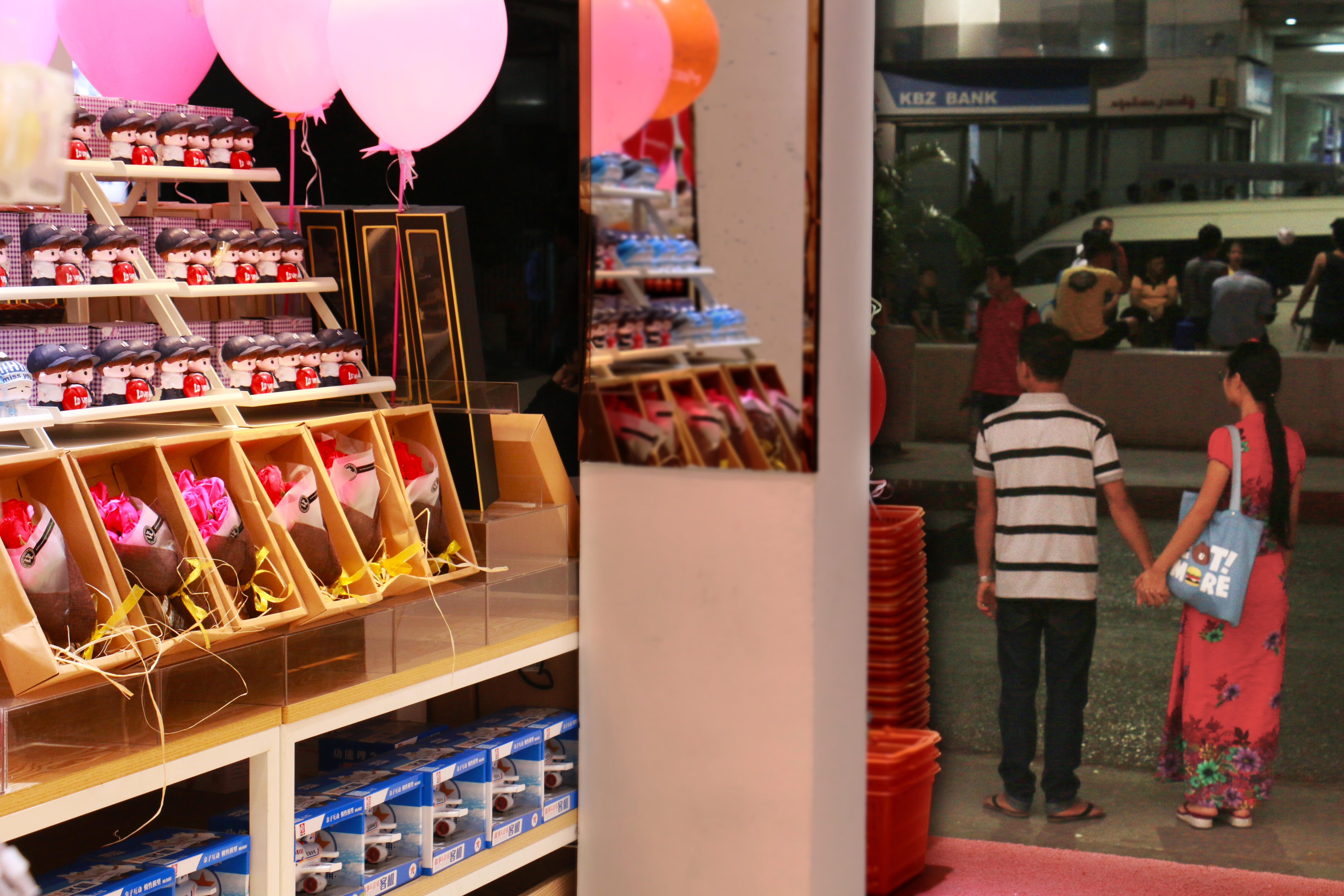YANGON, Myanmar - Valentine’s Day has become increasingly popular in Myanmar in recent years. Shops put on big displays of Valentine’s goods. Couples look forward to it as a day to give each other special attention, and to have a sweet rendezvous. There is love and suspense in the air.
But for many girls, Valentine’s Day is a day when they come under increased pressure to have sex, even when they do not want to. Gifts of chocolate and flowers, romantic fantasies, and the general anticipation of the day can create the expectation that girls must agree to sex on Valentine’s Day.
Learning the difference between sex and love
Young people are still exploring the boundaries within adolescence, and the excitement of their own emotions and sexuality. In transitioning from childhood and adolescence to adulthood, many have not yet learned the difference between love and sex.
“Girls – and boys also – need to know that they have the right to and can say “No” to sex. Society has a duty to inform young people about their choices, and to help them make right and safe decisions, especially when it comes to issues of sexuality and relationships”, says Janet Jackson, UNFPA Representative for Myanmar.
Giving young people confidence and information
For many young people, the right decision is to say “No” to sex. There are also young people who are emotionally ready, and for them the right decision could be to say yes to sexual intimacy with a trusted partner. But to do so safely, they need to know how to protect themselves from unintended pregnancy, HIV and other sexually transmitted infections, as well as from violence and abuse.
At the moment, pharmacies across Myanmar are stocking up on the emergency contraceptive pill to meet the high demand on the morning after Valentine’s Day. But young people should not have to resort to this option. While many need the confidence to simply say “No” to sex, others need knowledge about safe sex and about what types of contraceptives are most appropriate.
The only method that gives protection from unwanted pregnancy and from getting infected by HIV and other sexually transmitted infections is the condom. Even so, it is often difficult for girls and young women to negotiate with their boyfriend for safe sex and for using a condom.
The mobile app: Information that protects young people
To help young people make the right choice on Valentine’s Day and on all days, UNFPA has collaborated with youth groups and the Government of Myanmar to produce a mobile app for young people. This app offers information about growing up, and about health, love and relationship dilemmas.
The app is designed to give young people the confidence to make decisions that are safe, and that they will not regret. It also provides advice and practical suggestions on how to talk to their boyfriend or girlfriend about what they want and what they do not want.
What sets Love Question: Life Answer apart from so many other apps on the market today, is that it comes from a trusted source. With the backing of the United Nations and the Government of Myanmar, young people can fully trust the information in the app. What’s more, parents too can trust the information their sons and daughters are accessing through the app.
In the run-up to Valentine’s Day, there are specific sections of the app that are particularly important for young people:
All this information and much more is available in Myanmar language in the app, and on the web.
Comprehensive sexuality education
To make informed and safe choices about their bodies and their lives, young people need knowledge. This is why UNFPA also advocates for comprehensive sexuality education in Myanmar. Comprehensive sexuality education teaches children and young people the emotional, physical and social aspects of sexuality. It helps them adopt healthy lifestyles and avoid risks.
“The questions young people have are real. And our answers need to be honest. This affects their futures”, says Janet Jackson, UNFPA Representative for Myanmar.
UNFPA - working for a Myanmar where every young person’s potential is fulfilled



